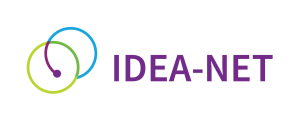Seoul National University – Seoul, South Korea
In the last two years the office has carried out different activities with regard to equal access/inclusion/diversity, namely:
- Lectures, workshops, seminars for students, faculty and non-teaching staff,
- Public promotion (e.g. production of media content such as podcasts),
- Improving digital accessibility
In addition to activities to support inclusion, DC implements recommendations/guidelines to counter exclusionary and discriminatory practices at the university. The last innovative practice introduced by DC was to hold an annual diversity book/movie recommendation contest, and after screening, 30 books and 10 films are selected and exhibited at the central library for a month from May to June. This can be seen as an event with the meaning of reminding all members of the value of diversity.
IDEA-net: Expanding the network of Inclusion, Diversity, Equity and Access (IDEA) practitioners in higher education through institutional capacity building
Project ref: 2022-1-NL01-KA220-HED-000089789

This project has been funded with support from the European Commission. This website reflects the views only of the authors, and the Commission cannot be held responsible for any use which may be made of the information contained therein.

